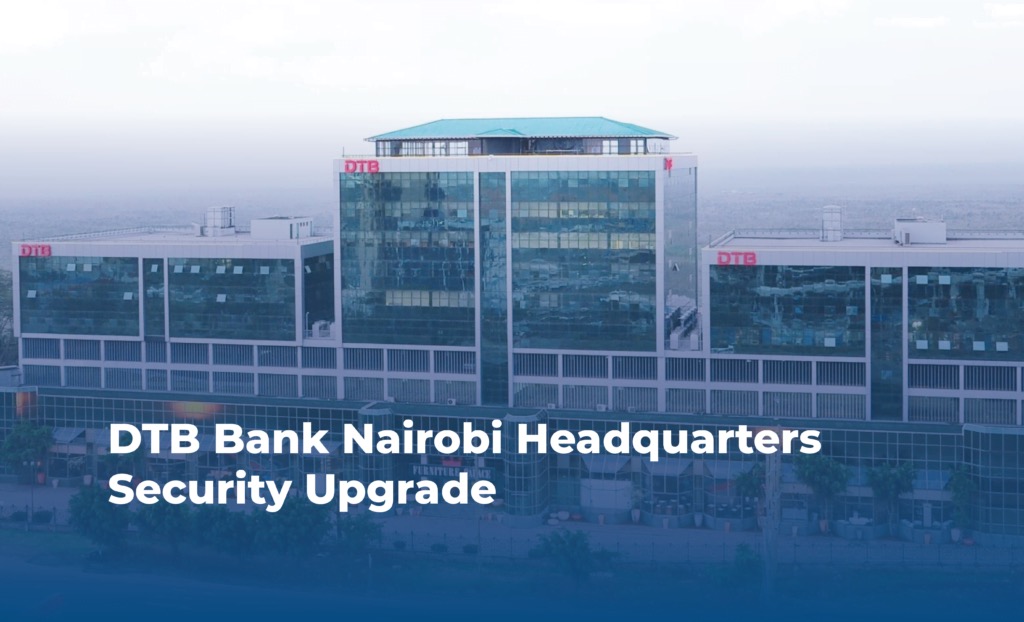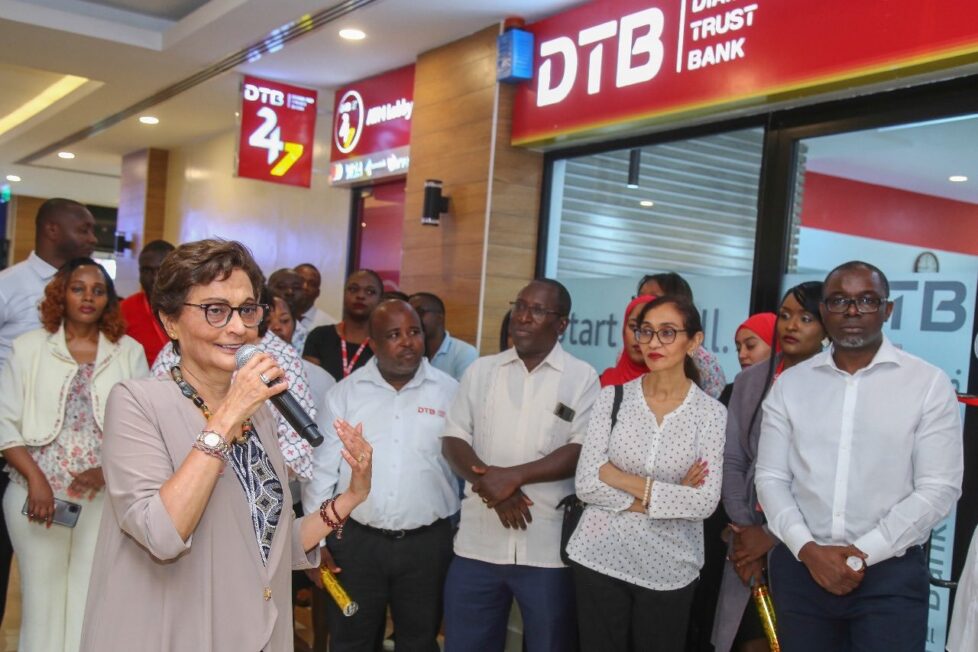In Kenya’s bustling financial and legal sectors, a series of high-profile court cases has cast a shadow over two prominent figures: Diamond Trust Bank (DTB) Group CEO Nasim Devji and seasoned lawyer Mohammed Madhani.
Recent rulings from 2024 to 2025 reveal a pattern of disputed property transactions marred by allegations of misrepresentation, inducement, fiduciary breaches, and clever attempts to sidestep statutory requirements like stamp duty and formal contracts.

Nasim Devji – DTB East Africa CEO
These cases not only highlight individual shortcomings but also expose systemic vulnerabilities in banking oversight and legal ethics, prompting calls for urgent reforms.
As Kenya grapples with rising non-performing loans (NPLs) at 16.4% in 2024 and over 328 new complaints against advocates for misconduct, reports from the Kenya Bankers Association (KBA) and Law Society of Kenya (LSK) underscore the broader implications.
Devji and Madhani’s repeated entanglements raise questions about governance, risk management, and the integrity of high-value deals.
The Cases: A Trail of Disputes
The Kisumu Saga: Pattni v Madhani & Others
One of the most damning cases unfolded in Kisumu High Court, where Justice Alfred Mabeya delivered a scathing judgment on October 3, 2025.
The dispute centered on an attempted purchase of prime plots in Kisumu and Kajiado, valued at KSh 128 million. Structured through a special-purpose vehicle (SPV) called Flynn Ltd., the deal was cleverly disguised as a corporate reorganization to evade stamp duty taxes – far from a straightforward sale.
The properties, owned by Intcon Africa Ltd., were already indebted to DTB Kenya. Under Devji’s leadership, the bank financed these encumbered assets despite glaring legal issues, including restrictions, encumbrances, and even a criminal history tied to the Kajiado plot.
DTB issued guarantees for the remaining KSh 43 million, becoming deeply implicated in the opaque setup.
Madhani, acting as intermediary and legal advisor, orchestrated the layered transactions but fell short on due diligence, failing to secure clean title transfers or adhere to written contract mandates.
The court labeled the scheme a “calculated move to circumvent the law,” citing violations of Section 3(3) of the Law of Contract Act.

Lawyer Mohammed Madhani
Plaintiffs Yogesh and Azmina Pattni were awarded a refund of KSh 85 million – paid in tranches of KSh 30 million in 2017 and KSh 55 million in 2018 – plus commercial interest from 2017.
A developers’ counterclaim was dismissed as time-barred, emphasizing the futility of tax-dodging maneuvers.
Nairobi’s Lavington Debacle: R World Enterprises Ltd v Devji & Others
In another Nairobi High Court ruling dated September 25, 2025, contractor R World Enterprises found itself at the center of a contentious Lavington property development. Lured by verbal assurances from DTB management and Madhani, the firm continued work amid payment uncertainties, lacking a solid written contract.
Defendants included Devji herself, DTB Kenya as the first defendant, Madhani as the second, and Westwood Villas Limited as the third. The latter contested jurisdiction, invoking an arbitration clause and misjoinder claims.
Justice Mulwa dismissed these defenses, upholding the contractor’s rights to seek redress for inducement and misrepresentation. The decision reinforced the perils of relying on non-written promises in multimillion-shilling ventures.
The Trust Betrayal: Kenya Knitting & Weaving Mills Ltd v Madhani & Co.
Dating back to 2007 but resolved in May 2024, this Nairobi case exposed fiduciary lapses in client fund handling. Madhani’s firm was accused of withholding millions in trust after a property transaction, inflicting heavy interest burdens on the plaintiff.
The court reaffirmed advocates’ duties, deeming the unjustified retention an abuse of trust and a breach of the Advocates Deposit Interest Rules. Interest was mandated for the delay, spotlighting risks in lawyer-client dynamics.
Analyzing the Abuse of Power

DTB Headquarters
Under Devji’s stewardship, DTB has navigated opaque deals, verbal commitments, and flawed property financing, amplifying operational risks. This aligns with broader controversies, including a 2023 Mwangi case and Ugandan disputes over unauthorized debits.
Her 2024 reassignment and DTB’s exit from Burundi operations further fuel governance concerns. Sector-wide, insufficient diligence mirrors NPL surges due to economic pressures and lax policies.
Madhani’s conduct – structuring dubious deals and blurring fiduciary boundaries – echoes in LSK’s 2024 report, where 25% of 328 complaints involved fund withholding.
His role as a non-neutral intermediary has induced reliance, leading to litigation and eroded trust, amid crackdowns on AML/CFT breaches.
Regulatory Ripples and Broader Impacts
These judgments reinforce statutory pillars like Section 3(3) of the Law of Contract Act and stamp duty obligations, rejecting evasion tactics outright. Governance scrutiny intensifies for DTB and regulators, with KBA highlighting fiscal strains and Moody’s downgrades.
Precedents demand elevated conduct, as LSK tackles over 250 complaints and clears backlogs.
Deeper analysis from 2024-2025 reports reveals urgent fixes:
- Contractual Transparency: Courts decry disguised transfers; the Business Laws (Amendment) Act, 2024, levies penalties up to KSh 20 million for lapses.
- Due Diligence Overhaul: Buyers and lenders must probe full property histories, beyond registries; LSK’s AML trainings flag risks.
- Banking Oversight: DTB’s slips reflect industry woes—NPLs at 16.4%, capital requirements rising to KSh 10 billion by 2029, and new funds like KGFT for climate risks. CBK’s moratorium lift and ISO standards push consolidation.
- Fiduciary Crackdown: Advocates face liability for delays; LSK’s 1,237 ADT cases include 30% misconduct, with 11 struck off in 2024. Banks are warned against intermediaries.
- Stakeholder Implications: Developers must secure approvals and disclose; buyers inspect thoroughly; lawyers risk civil/criminal fallout under LSK ethics guidelines.
Judicial activism bolsters protections against evasions, while legislative responses include enhanced audits, trainings, CBK penalties, and LSK’s AML oversight.
Media amplification heightens reputational risks, especially with sector growth eyed at 4.8% in 2025.
A Call for Reform
These intertwined cases illustrate how commercial zeal can eclipse obligations, demanding judicial intervention to preserve market trust.
As Kenya’s financial and legal landscapes evolve, overhauling compliance, ethics, and workflows is imperative to foster transparency and accountability.
Without it, the vulnerabilities exposed by Devji and Madhani’s saga could undermine the nation’s economic pillars.

